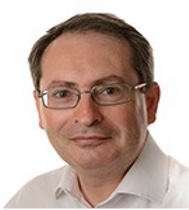We study collective behaviours and critical phenomena in various contexts: brain dynamics, computational epidemiology, urban and social dynamics, swarm intelligence, distributed computation, systems biology and nanoscience.
Our centre hosts biennial symposia and camps designed to bring together leading international scholars to discuss the latest in complex systems research.
Our research has an impact on diverse areas such as neuroengineering, epidemic modelling, active matter, systemic risk analysis and crisis forecasting, disaster and emergency management, as well as critical infrastructure stability.
It helps to develop solutions that can be applied to a wide range of industries including information and communication technologies, financial services, health, energy and civil and transport infrastructure.
CRISIS is funded as a Sydney Research Excellence Initiative (SREI 2020). It centres on the research project 'Modelling social risks and extreme events: from Angkor's demise to Australia’s housing crisis'.
This research program examines the greater Sydney area in the 20th and 21st centuries and the greater Angkor area in the 13th and 14th centuries.
It will develop a cross-disciplinary framework for analysis, modelling and design of adaptive urban systems resilient to stresses, using advanced techniques from complex systems, network science, agent-based computational modelling, and dynamical systems.
Outcomes will include precise and efficient methods for forecasting critical dynamics during urban transformation, a computational model (including scaling of settlement sizes), calibrated to Australian datasets, and a software simulator of possible interventions.
Every two years, we host a symposium that brings together leading international scholars to discuss the latest in complex systems research.
The Complexity, Criticality and Computation (C3) symposia bring to light emerging research and ideas about complex systems. In particular, we explore the relationship between three key concepts:
A system can be thought of as complex if its dynamics cannot be easily predicted, or explained, as a linear summation of the individual dynamics of its components.
There is a growing awareness that complexity is strongly related to criticality, which is the behaviour of dynamical spatiotemporal systems at an order or disorder phase transition where scale invariance prevails.
Complex systems can also be viewed as distributed information-processing systems. Global systems behaviour (e.g cell behaviour resultant from gene regulatory networks) emerges as the result of the local interaction of individuals - can these interactions be seen as a generic computational process?
The 2023 Complexity, Criticality and Computation (C3) Symposium was held at the University of Queensland's Heron Island Research Station. The symposium focused on three key questions: the universality of physical and biological principles, the emergence of consciousness and language, and the role of physical constraints in the rise and fall of civilisations.
The 2019 C3 Symposium focussed on two broad themes: Sociophysics and Biocomplexity, across a diverse range of topics studied in Complex Systems.
The 2017 C3 Symposium focussed on two broad themes: Sociophysics and Biocomplexity, across a diverse range of topics studied in Complex Systems.
Our camps are designed to develop the knowledge and skills required to study complex systems. Humans are typically inclined to use reductionist logic. To understand how a system would behave overall, or to test whether a human-made system works as it was intended to, we put it through a series of short, discrete scenarios, expecting a ‘correct' response to each scenario.
However, complex systems do not lend themselves to short, discrete scenarios. Not all scenarios have clear endings or known, correct answers. The study of complex systems is about understanding indirect effects.
The camp included 2 days across multiple scales, from the game of Go to galaxy morphology. Each topic was covered over a two-hour tutorial, delivered by complex systems experts from the Centre for Complex Systems and overseas.
A 5-day camp, which covered three research themes; models for complex systems, complex biological systems and complex adaptive systems. Each theme was covered in a number of three-hour tutorials, delivered by complex systems experts from the Centre for Complex Systems and overseas.
Manual Description :
Manual Address :
Manual Addition Info Content :
Manual Type : profile

_self
Auto Type : contact
Auto Addition Content :
Auto Name : false
Auto Position : false
Auto Phone Number : false
Auto Mobile Number : false
Auto Email Address : false
Auto Address : false
UUID : M-PROKOPENKO